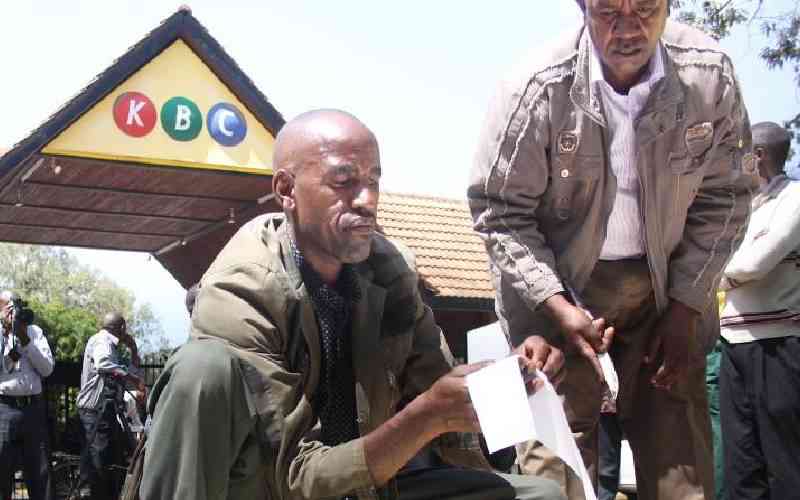
NAIROBI: The Office of the President, Parliament and the Kenya Police Service are among institutions that owe the County Government of Nairobi Sh188 billion.
The institutions owe the money in land rate arrears.
If paid, the money would be used to improve lighting, road repairs and security.
Chief officer in charge of rates Peter Mureithi said a majority of the defaulters are buildings owned by the national government and affiliated agencies, which account for 80 per cent.
Private institutions and individuals account for 20 per cent of the debt.
“The Government is our biggest debtor. The last time it paid rates was 2009. If they paid these debts, we would then be in a better position to provide services not only to Nairobi but other Kenyans that are based here,” said Mr Mureithi.
Parliament owes the city government Sh43 million, Department of Defence (DOD) approximately Sh30 million, Parliamentary Service Commission (Sh5.9 million), Central Police (Sh5.5 million), National Treasury (Sh5.2 million), Vigilance House (Sh3.2 million) and KCC Sh2.2 million.
Mureithi, however, did not divulge how much the Office of the President (which includes that of the deputy president) owes the city county.
Kenya Railways also owes the county Sh8 million through their pension scheme that owns tracts of land in Makongeni, Muthurwa, Ngara and Upper Hill.
Other major defaulters are Jogoo House, Police House, KBC, Nyati House and Nyayo House.
The rates officer explained that in the CBD alone, 8,549 properties owed the city government a total of Sh11.6 billion, the majority being prominent properties. Properties in the sub-counties contributed to the total debt of Sh188 billion. Officers have been deployed to the 17 sub-counties to ensure the defaulters pay up.
“After March 31 every year, any arrears that have not been paid are considered debts, which we enforce through clamping as provided for by the law through the Rating Act. We have sent our officers to the sub-counties and clamping operations have begun,” said Mureithi.
He added: “Once we clamp the properties, the tenants are required to pay their rent directly to us. Usually, the owners intervene and pay immediately to avoid the embarrassment. However, we are mandated by the law to auction the property in order to recover our debt.”
Negotiations between the national government and the county government on how to settle the debt has been on-going for years but has not yielded fruit.
Stay informed. Subscribe to our newsletter
“We have written to Government through the National Treasury, which is still in talks with the highest level of the county administration, but nothing has come out of it yet. It would, however, be much better if Government buildings paid individually and not as a collective because if the National Treasury is among the defaulters, then how can we assist the rest?” posed Mureithi.
Furthermore, the valuing of buildings was last done in 1982. The county is, however, working on a new Rates Bill, expected to be adapted this year.
The law will allow it to auction defaulters’ property.
 The Standard Group Plc is a
multi-media organization with investments in media platforms spanning newspaper
print operations, television, radio broadcasting, digital and online services. The
Standard Group is recognized as a leading multi-media house in Kenya with a key
influence in matters of national and international interest.
The Standard Group Plc is a
multi-media organization with investments in media platforms spanning newspaper
print operations, television, radio broadcasting, digital and online services. The
Standard Group is recognized as a leading multi-media house in Kenya with a key
influence in matters of national and international interest.
 The Standard Group Plc is a
multi-media organization with investments in media platforms spanning newspaper
print operations, television, radio broadcasting, digital and online services. The
Standard Group is recognized as a leading multi-media house in Kenya with a key
influence in matters of national and international interest.
The Standard Group Plc is a
multi-media organization with investments in media platforms spanning newspaper
print operations, television, radio broadcasting, digital and online services. The
Standard Group is recognized as a leading multi-media house in Kenya with a key
influence in matters of national and international interest.








